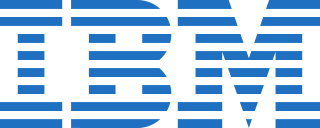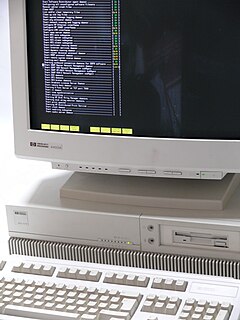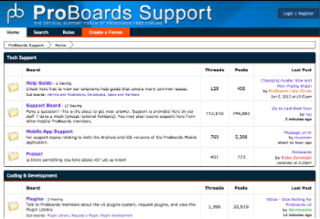
3Com Corporation was an American digital electronics manufacturer best known for its computer network products. The company was co-founded in 1979 by Robert Metcalfe, Howard Charney and others. Bill Krause joined as President in 1981. Metcalfe explained the name 3Com was a contraction of "Computer Communication Compatibility", with its focus on Ethernet technology that he had co-invented, which enabled the networking of computers.

Novell, Inc. was an American software and services company headquartered in Provo, Utah. Its most significant product was the multi-platform network operating system known as Novell NetWare.

United Linux was an attempt by a consortium of Linux distributors to create a common base distribution for enterprise use, so as to minimize duplication of engineering effort and form an effective competitor to Red Hat. The founding members of United Linux were SUSE, Turbolinux, Conectiva and Caldera International. The consortium was announced on May 30, 2002. The end of the project was announced on January 22, 2004.

IBM Internet Security Systems, formerly Internet Security Systems, and often known simply as ISS or ISSX is a security software and managed security services provider founded in 1994. The company was acquired by IBM in 2006. It provides software and services for computers, servers, networks, and remote locations that involve preemptive security against threats before they affect a business.

SCO, The SCO Group, and The TSG Group are the various names of an American software company in existence from 2002 to 2012 that became known for owning Unix operating system assets that had belonged to the Santa Cruz Operation, including the UnixWare and OpenServer technologies, and then, under CEO Darl McBride, pursuing a series of high-profile legal battles known as the SCO-Linux controversies.

Caldera International, earlier Caldera Systems, was an American software company that existed from 1998 to 2002 and developed and sold Linux- and Unix-based operating system products.

Groklaw was a website that covered legal news of interest to the free and open source software community. Started as a law blog on May 16, 2003 by paralegal Pamela Jones ("PJ"), it covered issues such as the SCO-Linux lawsuits, the EU antitrust case against Microsoft, and the standardization of Office Open XML.

The Santa Cruz Operation, Inc. was an American software company, based in Santa Cruz, California, that was best known for selling three Unix operating system variants for Intel x86 processors: Xenix, SCO UNIX, and UnixWare.

Unix System V is one of the first commercial versions of the Unix operating system. It was originally developed by AT&T and first released in 1983. Four major versions of System V were released, numbered 1, 2, 3, and 4. System V Release 4 (SVR4) was commercially the most successful version, being the result of an effort, marketed as Unix System Unification, which solicited the collaboration of the major Unix vendors. It was the source of several common commercial Unix features. System V is sometimes abbreviated to SysV.
In a series of legal disputes between SCO Group and Linux vendors and users SCO alleged that its license agreements with IBM meant that source code IBM wrote and donated to be incorporated into Linux was added in violation of SCO's contractual rights. Members of the Linux community disagreed with SCO's claims; IBM, Novell and Red Hat filed claims against SCO.
SCOsource is a business division of The SCO Group that manages its Unix intellectual property. The term SCOsource is often used for SCO's licensing program that allows corporate users of Linux to buy licenses to proprietary Unix technology that SCO claims exists in the Linux operating system. A single CPU license costs $699 (USD).
Attachmate Corporation is a 1982-founded software company which focused on secure terminal emulation, legacy integration, and managed file transfer software. Citrix-compatibility and Attachment Reflection were enhanced/added offerings.

ProBoards is a free, remotely hosted message board service that facilitates online discussions by allowing people to create their own online communities.

Project Monterey was an attempt to build a single Unix operating system that ran across a variety of 32-bit and 64-bit platforms, as well as supporting multi-processing. Announced in October 1998, several Unix vendors were involved; IBM provided POWER and PowerPC support from AIX, Santa Cruz Operation (SCO) provided IA-32 support, and Sequent added multi-processing (MP) support from their DYNIX/ptx system. Intel Corporation provided expertise and ISV development funding for porting to their upcoming IA-64 CPU platform, which was yet to be released at that time. The focus of the project was to create an enterprise-class UNIX for IA-64, which at the time was expected to eventually dominate the UNIX server market.
IBM InfoSphere DataStage is an ETL tool and part of the IBM Information Platforms Solutions suite and IBM InfoSphere. It uses a graphical notation to construct data integration solutions and is available in various versions such as the Server Edition, the Enterprise Edition, and the MVS Edition. It uses a client-server architecture. The servers can be deployed in both Unix as well as Windows.
Caldera OpenLinux (COL) is a defunct Linux distribution. Caldera originally introduced it in 1997 based on the German LST Power Linux distribution, and then taken over and further developed by Caldera Systems since 1998. A successor to the Caldera Network Desktop put together by Caldera since 1995, OpenLinux was an early "business-oriented distribution" and foreshadowed the direction of developments that came to most other distributions and the Linux community generally.
Nirvanix is an American-based provider of business phone systems, VoIP services, hosted PBX, SIP Trunks, and cloud storage services headquartered in San Diego, California, United States. The company offers a variety of business phone solutions for small, medium as well as enterprise businesses. It also has a strong presence in public, hybrid and private cloud storage services with usage-based pricing. Based on previous service companies founded in 1998, Nirvanix shut down in October 2013. In July 2021 Nirvanix re-entered the business with $12 million funding.
Xinuos is an American software company that was created in 2011 and was first called UnXis until assuming its current name in 2013. Xinuos develops and markets the Unix-based OpenServer 6, OpenServer 5, and UnixWare 7 operating systems, which have a long history in the marketplace, with prior owners being the Santa Cruz Operation and The SCO Group, as well as the newer OpenServer 10 operating system, which it developed upon a base of FreeBSD.

SCO Forum was a technical computer conference sponsored by the Santa Cruz Operation (SCO), briefly by Caldera International, and later The SCO Group that took place during the 1980s through 2000s. It was held annually, most often in August of each year, and typically lasted for much of a week. From 1987 through 2001 it was held in Santa Cruz, California, on the campus of the University of California, Santa Cruz. The scenic location, amongst redwood trees and overlooking Monterey Bay, was considered one of the major features of the conference. From 2002 through 2008 it was held in Las Vegas, Nevada, at one of several hotels on the Las Vegas Strip. Despite the name and location changes, the conference was considered to be the same entity, with both the company and attendees including all instances in their counts of how many ones they had been to.

IBM Cloud, is a set of cloud computing services for business offered by the information technology company IBM.













